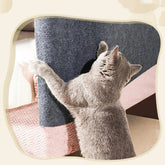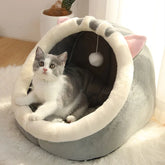Cats The Quintessential Companions

Few creatures capture the imagination and hearts of humans quite like the domestic cat. With their enigmatic behaviors, graceful movements, and unique personalities, cats have secured a place not only in our homes but also in our cultural fabric. From their historical roles in ancient civilizations to their modern-day presence as beloved pets, cats have a fascinating story that intertwines with human history.
A Brief History of Cats
The domestication of cats is believed to have started around 9,000 years ago in the Near East. Archaeological evidence suggests that early agricultural communities saw the value of cats in controlling rodent populations, which protected food stores. Over time, a symbiotic relationship developed, leading to the domesticated cats we know today.
Ancient Egypt, in particular, revered cats, associating them with the goddess Bastet, who symbolized home, fertility, and protection. Killing a cat, even accidentally, was considered a grave offense. The Egyptians’ admiration for cats contributed to their spread throughout Europe and beyond, as traders and travelers took these creatures along on their journeys.
Cats in Culture
Cats have permeated various aspects of culture, from folklore and mythology to literature and art. In Japanese culture, the "maneki-neko" or beckoning cat is believed to bring good luck and fortune. In European folklore, cats, particularly black ones, are often associated with witchcraft and superstition.
Literature, too, has a rich history of feline characters, from the Cheshire Cat in Lewis Carroll's "Alice's Adventures in Wonderland" to T.S. Eliot's "Old Possum's Book of Practical Cats," which inspired the famous musical "Cats." These representations often emphasize the mysterious and independent nature of cats, traits that endear them to many.
The Science of Cats
Understanding cat behavior and physiology reveals much about why they act the way they do. Cats are obligate carnivores, meaning their diet must consist primarily of meat. This dietary requirement has influenced their hunting behaviors and predatory instincts.
Cats communicate through a combination of vocalizations, body language, and scent marking. Their purring, often interpreted as a sign of contentment, can also indicate stress or illness. Understanding these subtle signals is crucial for cat owners to ensure their pets’ well-being.
The domesticated cat retains many behaviors from its wild ancestors. For instance, the kneading motion cats make with their paws is thought to originate from kittenhood, where it stimulates milk flow from the mother. Similarly, their penchant for high places and their playful nature are remnants of their hunting and survival instincts.
The Benefits of Cat Companionship
Numerous studies highlight the benefits of having a cat as a companion. Cats provide emotional support, reduce stress, and contribute to overall mental well-being. Their presence can lower blood pressure and cholesterol levels, and the act of petting a cat is known to release endorphins, fostering a sense of calm and happiness.
Moreover, the relatively low-maintenance nature of cats compared to some other pets makes them ideal for various lifestyles. Their independent streak means they can be left alone for longer periods, provided they have food, water, and a stimulating environment.
Caring for Your Cat
Proper care is essential to ensuring a cat’s health and happiness. Regular veterinary check-ups, a balanced diet, and mental and physical stimulation are key components of responsible cat ownership. Providing scratching posts, interactive toys, and safe outdoor access can help satisfy a cat’s natural behaviors and prevent boredom.
Understanding and respecting a cat's boundaries is also crucial. Unlike dogs, cats may not always seek constant interaction and may need their space. Recognizing when a cat wants to be left alone versus when it seeks attention can strengthen the bond between a cat and its owner.
Conclusion
Cats, with their blend of independence and affection, continue to captivate and charm people around the world. Their historical significance, cultural impact, and the joy they bring into our lives underscore their status as quintessential companions. Whether as solitary hunters or beloved pets, cats have carved a unique niche in the human heart, making them truly special members of our families.







































